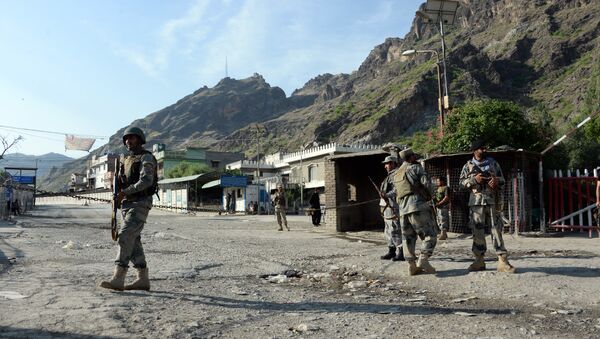"The US continues to be clear with Pakistan about steps it should take to improve the security environment and deny safe haven to terrorist and extremist groups," says the regular six-monthly report that the US Department of Defense sent to the Congress this Friday.
The report says openly that these discussions not only affect the US-Pakistani dialogue on security and stability, but "it also affects other issues, such as security assistance".
The "security assistance" means $300,000 that the Pentagon withheld in Coalition Support Fund to Pakistan for the current fiscal year ending September 3. This happened after US Defense Secretary Ashton Carter has not given his certification that Pakistan took measures against the terrorist presence in the country — namely against the group called Haqqani Network.
Haqqani Network is just one of almost a dozen of different militias that seek — and reportedly find — refuge along the Afghanistan-Pakistan border, dubbed "terror safe haven."
According to the report, these terrorist groups include: "Taliban, al-Qaeda, AQIS, the Haqqani Network, Lashkar-e Taiba, Tehrik-e-Taliban Pakistan, IS-Khorasan Province and the Islamic Movement of Uzbekistan."
Arguably one of the most disturbing of these is AQIS, short for "Al-Qaeda in the Indian Subcontinent," a subsidiary of Al-Qaeda that recently began a new stage of development, turning to the resources of Pakistani's biggest city of Karachi.
The report did note that "consistent mid-level military-to-military dialogue between Afghanistan and Pakistan on specific issues, such as the shared threat from IS-Khorasan Province, and occasional discussions at higher levels of the military and government early in the reporting period were encouraging."
However, the Pentagon clearly thinks this is not enough, as the report concludes that "sustained Pakistani efforts to pressure the Haqqani Network and the Taliban and to disrupt active threat streams are necessary to help decrease violence in the region, to reduce the threat posed by these groups and to achieve lasting progress on counter-terrorism issues."
While $300,000 might appear significant, it's actually a drop in the bucket compared to the total amount of annual US aid to Pakistan which averages about $1.5 to $2 billion.



